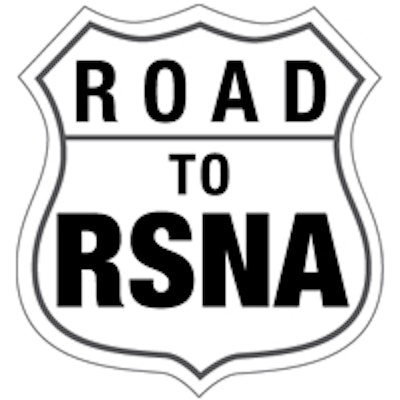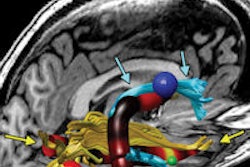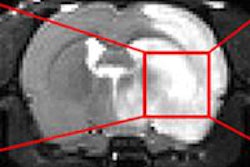
The landmark 100th annual meeting of the Radiological Society of North America (RSNA) offers more than 5,000 scientific papers, posters, refresher courses, and education exhibits, punctuated by special RSNA Centennial exhibits and activities throughout the week.
MRI is featured predominantly across virtually all subspecialties, including oncology, cardiology, neurology, and pediatrics, as well as new developments in the quest to better understand and identify cognitive abnormalities, dementia, and Alzheimer's disease.
Among the more novel research papers scheduled for presentation is a study of prenatal brain development using 3-tesla MRI, the use of MRI to link mild traumatic brain injury to subsequent depression among young patients, how contact sports can affect athletes' brains, and a new MRI technique that could make it easier to assess prognosis and make life decisions for patients who are comatose due to traumatic brain injury. There also is a study on how MRI may be a more suitable first option for some emergency department cases.
MRI's combination with PET continues to fuel the curiosity of researchers who have submitted more scientific papers and educational exhibits to RSNA 2014 than in previous years, as the hybrid modality promises to influence radiology into the near and long-term future. The addition of MRI to PET also is gaining popularity as a viable option to PET/CT, depending on the clinical application, to reduce radiation exposure to both patients and staff.
PET/MRI also is featured in an educational session to evaluate the hybrid modality with breast cancer (BRE011-b). The forum takes place on Saturday, November 29, at noon at McCormick Center's Lakeside Center.
For more information on this year's annual meeting and all its highlights, please click here to view the official RSNA meeting program.
In the meantime, enjoy the sampling below of novel MRI scientific papers scheduled for presentation this year in Chicago.



.fFmgij6Hin.png?auto=compress%2Cformat&fit=crop&h=100&q=70&w=100)




.fFmgij6Hin.png?auto=compress%2Cformat&fit=crop&h=167&q=70&w=250)











